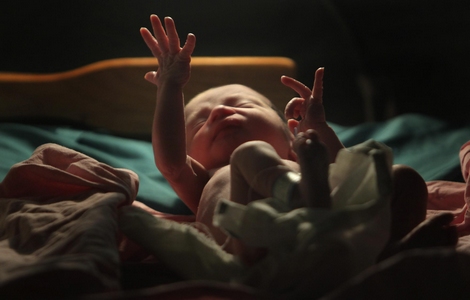TV regulation may hurt profits
Updated: 2011-10-27 09:24
By Wang Yan (China Daily)
|
|||||||||||
BEIJING - A regulation to cap the number and limit the length of entertainment shows in China is not likely to reshuffle the country's satellite channel rankings, but it could hurt profits, experts say.
Aimed at curbing TV shows of "excessive entertainment" and "low taste", the regulation, issued on Oct 25 by the State Administration of Radio, Film and Television (SARFT), limits each of the country's 34 satellite channels to two entertainment programs each week, while more news, moral education programs and documentaries are encouraged.
The regulation allows a maximum of 90 minutes of entertainment content from 7:30 pm to 10 pm every day for each channel. During the same period, the 34 channels can show only nine entertainment programs in total.
The entertainment programs refer to matchmaking programs, talent contests, talk shows and reality shows.
Meanwhile, each channel has been asked to create a program that promotes traditional virtues and socialist core values. Broadcasting at least two hours of news programs between 6 am and midnight is also required. Between 6 pm and 11:30 pm, they must each broadcast at least two 30-minute news programs.
The regulation comes into effect on Jan 1.
In an interview with Xinhua News Agency on Wednesday, a spokesperson for SARFT said the regulation was issued "in accordance with the mass audience's complaints of too many entertainment shows".
"Right now during prime time, there are a total of 126 entertainment shows on air among the 34 satellite channels, according to numbers from SARFT. That leads to an average of 17 such shows each night," said the spokesperson.
Satellite channels are taking quick actions to respond.
A major entertainment program provider, Hunan TV, has been undergoing a series of program revisions during the past few months, including terminating two entertainment shows and moving another two after midnight.
Li Hao, a host at Jiangsu TV, said on his micro blog on Oct 25 that a program he hosts called My Man Can, where several couples compete in games for chances at world tours, will stop recording next month.
"We are trying our best to come up with a 'moral education' show," he wrote in the post.
Satellite channels are not likely to be deeply influenced, according to Zheng Baowei, director of the National Journalism Research Association.
"For such channels that have been doing a good job, adjusting to the new regulation should not take long. They've got the experience and innovative ability to come up with new attractive programs."
But Yu Guoming, a communications professor at Renmin University of China, looked more at the possible downsides.
"The administrative action might intervene in the industry, leading to economic effects."
His remarks are backed by the SARFT research center report. According to the 2010 Report on Development of China's Radio, Film and Television, various shows contributed the most to the ratings of satellite channels in 2009, with an effect almost twice that of films, the next largest factor.
"If the mass audience is interested in watching existing shows, changing or banning them without offering new interesting ones will cause problems. The public needs psychological massage and relaxation through such programs," Yu said.
Liang Liang, a 26-year-old planning manager at a foreign advertising company in Beijing, said she expects to see the effects of the new regulation, but sitting in front of her TV set has never been the first choice for news.
"I like TV shows that have a point in them. I wouldn't care if the regulation bans those showing nothing but stupidity. As for news though, I'd prefer something fast like Weibo."
Officials also defused rumors that overseas artists will be under a tightened censorship on screen.
Yang Yi, spokesman for the Taiwan Affairs Office of the State Council, said on Wednesday in Beijing that the new regulation will not limit the number of Taiwan entertainers attending or hosting TV programs on the mainland.
"The regulations on managing overseas artists to work in the mainland remained unchanged," Yang said.
Tan Zongyang contributed to this story.










